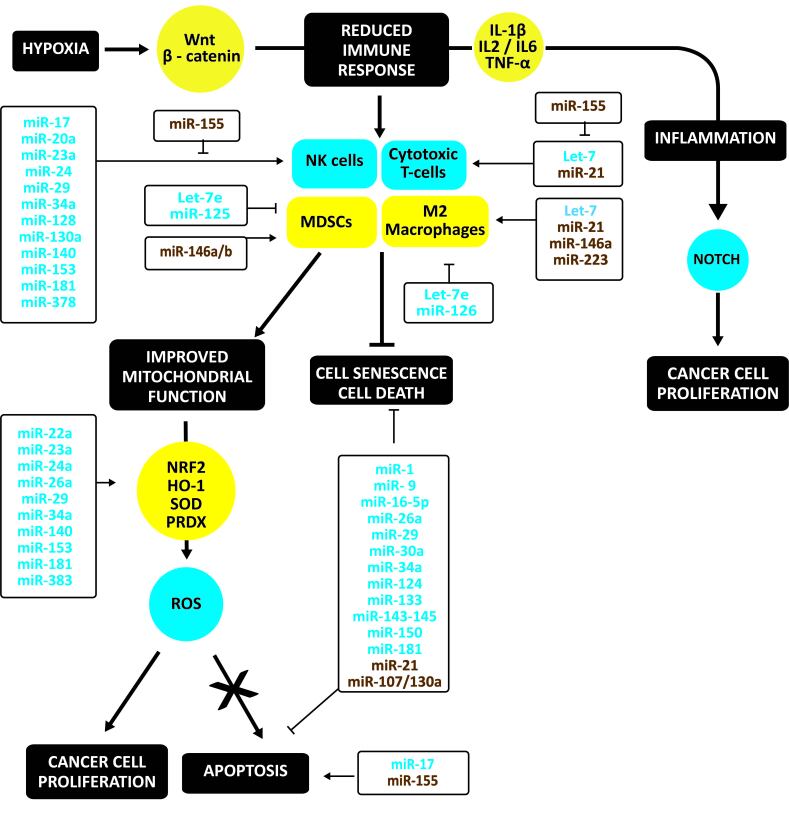Figure 3.
Oxidative stress, immune response, inflammation, and apoptosis in cancer. Hypoxia, one of the hallmarks of cancer, reduces the anti-cancer immune responses by activating Wnt/β-catenin. As a result, cytotoxic T cells and NK cells decrease, and immunosuppressive Th2 and Treg cells, myeloid-derived suppressor cells and M2 macrophages increase. This shift augments immunosuppressive cytokines and decreases inflammatory cytokines. Notably, ROS is increased in cancer cells. However, there is a strict balance of ROS levels in the growing tumor to allow cancer cell proliferation and avoid tumor cell apoptosis. This protection is due to a shift from oxidative to antioxidative factors. Upregulated regulators are in yellow circles, downregulated ones in blue circles. Upregulated non-coding RNAs are in brown, down-regulated ones in blue.

